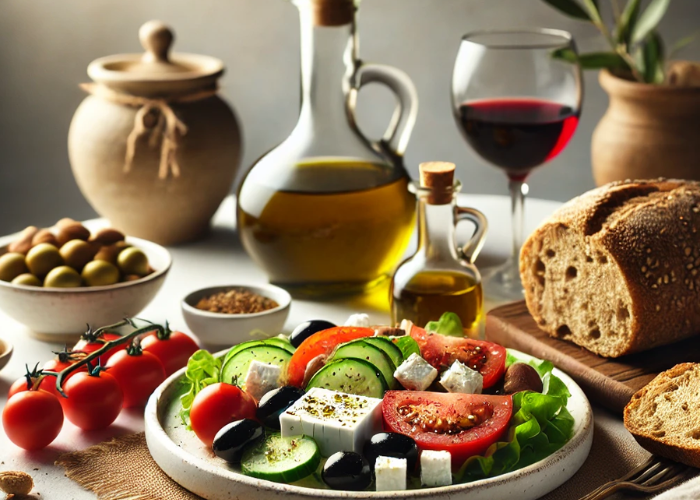Mediterranean Diet: A Heritage to DefendBY PIETRO PAGANINI
- 18 February 2025
- Posted by: Competere
- Categories: Balanced Lifestyle, Empowering Consumers, highlights, News, Obesity & NCDs

In recent months, voices have multiplied accusing the Mediterranean Diet of being an exaggeration or even a lie. These are baseless criticisms, aimed at undermining the agri-food economy of Mediterranean countries, with Italy as the main target. It is an ideological and commercial response to the Italian government’s food populism, which exploits it for propaganda and economic purposes. Both sides are wrong. The Mediterranean Diet is much more than just a list of typical products and recipes: it is a lifestyle based on balance, something the world envies us for. This is what led UNESCO to recognize it as an intangible cultural heritage of humanity.
WHY IT IS IMPORTANT
THE ROOTS OF MISUNDERSTANDING
In the 1970s, Ancel Keys, through his famous Seven Countries Study, defined a dietary model capable of preventing serious diseases and extending life expectancy. He called it the “Mediterranean Diet” after observing the longevity of countries such as Greece, Italy, and the former Yugoslavia compared to Finland, the United States, and others. However, the connection between diet and health is much older. As early as the 5th century BC, Hippocrates had already understood that what we eat profoundly affects our well-being.
THE BALANCE OF THE MEDITERRANEAN DIET
In ancient Greece, food was not just nourishment – it was part of a complex system based on the balance between mind and body, social interactions, hospitality, moral reflection, and leisure. This vision aligns with Aristotle’s “medio stat virtus” (virtue lies in the middle), the art of balancing excess and deprivation, and later, Paracelsus’ principle that “the dose makes the poison.” In ancient Greek, diet literally means “way of life.”
This is the core principle of Mediterranean culture: not a rigid dietary regimen, but a method that helps us adapt to changes and provide new answers to improve our quality of life and longevity.
NOT JUST TYPICAL DISHES, BUT A WAY OF LIFE
Reducing the Mediterranean Diet to specific foods or recipes is a serious mistake. Foods and dishes have changed over time due to factors such as famines and public policies, cultural exchanges and imports, and evolving nutritional needs. For centuries, Mediterranean societies lived in conditions of calorie deficiency, compensated by hard labor in the fields and later in factories. The Mediterranean Diet did not survive because of specific foods but as a method passed down through generations, even in the darkest times. This balance held firm until the post-war economic boom, when caloric abundance began to erode the Mediterranean method and its fundamental principle: balance.
WHY WE HAVE LOST BALANCE
- consume too many calories, now readily available in abundance;
- burn too few calories due to an obesogenic environment that lacks free play and physical activity;
- are subjected to media pressures, physiological disorders, food deserts, and other challenges.
TECHNOLOGY AND PERSONALIZATION
OUR RESPONSIBILITY
Rather than building an easily debunked culinary myth, the government should collaborate with Mediterranean countries to promote the true essence of the Mediterranean lifestyle: eating as an experience of affection, reflection, and social interaction. Foods may change, but the authentic Mediterranean lifestyle remains. We must not let it perish under the weight of accusations and commercial pressures. Instead, we must nurture and protect it for ourselves and future generations.
The greatest gift we can give our children is to teach them balance and pass on a legacy of health, culture, and well-being – one that the world envies us for.
